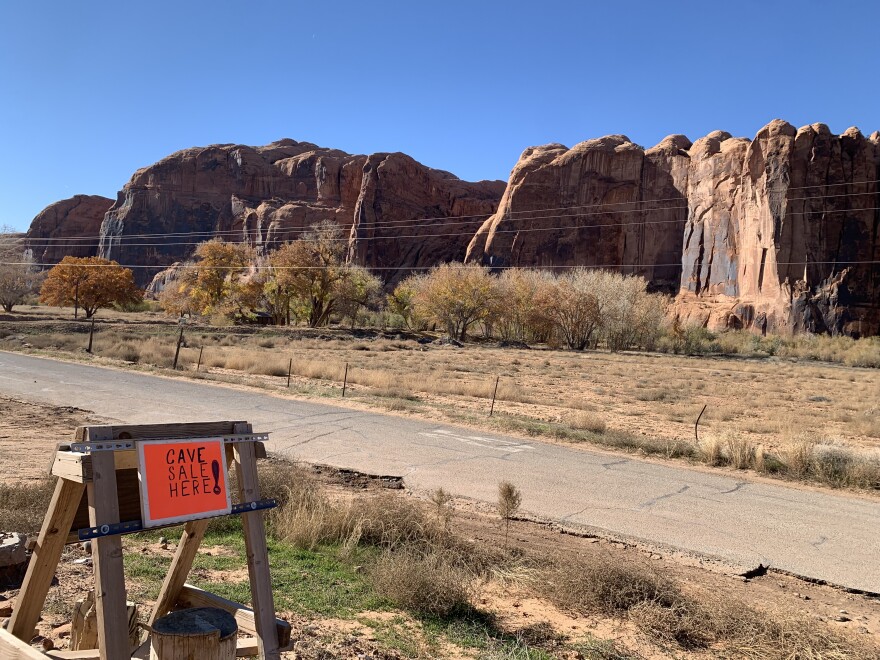If you drove down Kane Creek Boulevard outside of Moab on a recent weekend, you might have seen signs for a cave sale.
It's what it sounds like, a very Moab take on your weekend yard sale.
The caves on the bank of this stretch of the Colorado River have drawn drivers' eyes from the dramatic canyon walls for decades.
They're a quirky part of Moab's history, or at least they used to be.
Anne Walden's family last owned this land.
On this particular afternoon she's guiding a trickle of visitors through the property and retelling some of that history.
"We had 3000 chickens in here, and we supplied the town with the eggs," she said.
Walden's family sold their farm in Illinois and came to Moab in the early seventies.
They bought this stretch of canyon country, which already included the cave complex.
"My dad and I came out here one winter and he came down to me and he says, 'this has always been my dream,'" said Walden.
The previous owner built the caves in the fifties and used them to store chickens.
It was cool in the blistering summer and warm in the biting winters.
Overhead lights would dim at night so the chickens could rest.
"The temperature was so nice for these chickens," said Walden.
Walden's family took over the business providing fresh eggs to grocery stores and restaurants.
People would buy the chicken droppings, which seemed to pile up as fast as you could shovel it, for fertilizer.
The kids all had a role in the operation.
It was Walden's job to primarily collect the eggs.
"I'd have my baskets and I'd grab a basket and put it up and gently grab the eggs and put 'em into the basket, and then I get that one full and I put it down. And as soon as I get enough in, I go into the washroom, (and) wash them," she recounted.
In the mid seventies, Walden's family quit the chicken business and the cave became sort of a storage unit.

Walking through the cave, there are a couple small rooms in the front, and then opens up into a space about the size of a basketball court with exposed jagged white rock walls.
The cave is filled with things that have accumulated over the decades, now part of the sale.
There are engine parts, cans of paint, and some green office chairs from the seventies.
In the back, there's a piano on sale for $50 or your best offer.
Everything needs to go.
Whatever's left will be tossed out.
Walden says she'll be glad to be rid of all the stuff in here, but this cave also holds some nostalgia.
Developers recently bought this land.
They're building a neighborhood of vacation homes near this property.
There was a man renting this cave and living in it for a time.
There were others in tract homes down the road, hugging the canyons.
They were all kicked out.
It's unclear what will happen to the caves now, but it's unlikely those plans will include chickens.
This story from KZMU was shared with Aspen Public Radio via Rocky Mountain Community Radio, a network of public media stations in Colorado, Wyoming, Utah and New Mexico including Aspen Public Radio.
Copyright 2022 Aspen Public Radio . To see more, visit Aspen Public Radio . 9(MDEyNDE4NDgyMDEzODIwMjkwMTE0MzcxYg001))


